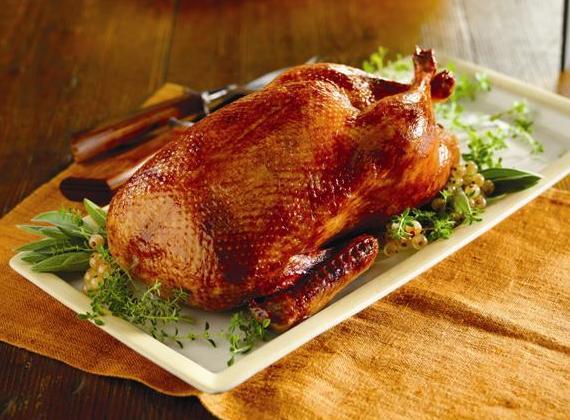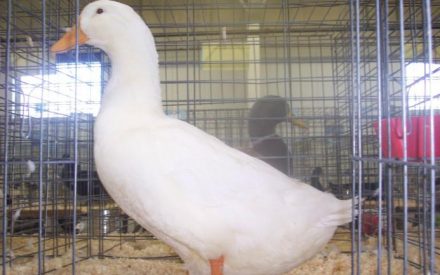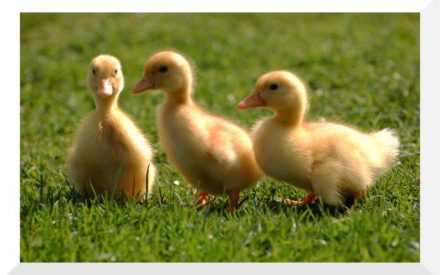Raising commercial market ducks to show at your county fair can be educational, fun, challenging and as rewarding as raising any other species for competitive exhibitions. County fairs may also have a market animal sale that can make your duck project even more profitable!
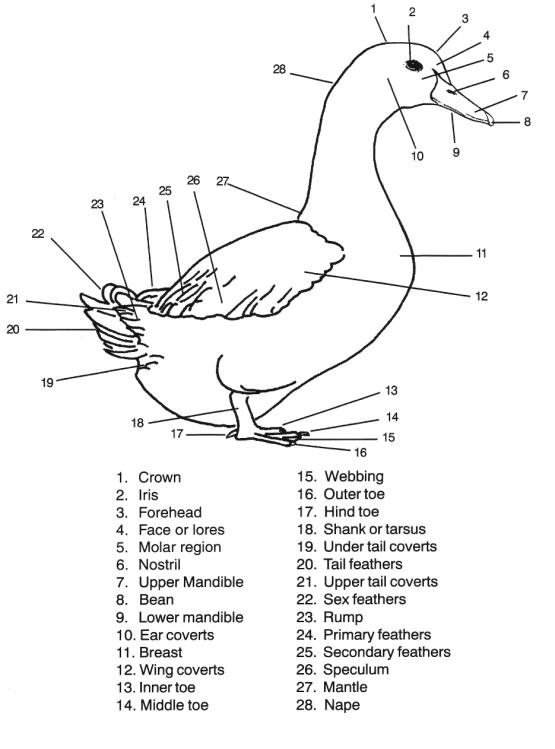
Success at the county fair begins long before the ducklings arrive. Research the techniques of raising ducks by reading books, online literature, University Extension Bulletins and YouTube videos.
Talk to others who have experience raising ducks. Visit farms that raise ducks and review the American Poultry Association’s Standard of Perfection to get a feel for the fancy ducks and their history.
Become familiar with the parts of the duck so that you can communicate with others about your ducks. The Standard of Perfection contains an excellent diagram of the parts of the duck (see right).
Contact suppliers of ducklings to learn the genetics of the commercial market ducks that are available and comparatively shop for the best price. Place your order in time so that you receive delivery of your ducklings seven weeks before the fair.
Seek out feed suppliers that can provide you with quality balanced rations at the most economical price.
Acquire the equipment necessary for raising your ducks. Clean and disinfect the brooding area and housing facilities. If your ducklings arrive by mail, make sure that you dip each duckling’s bill into the water to make sure they find the water. Ducklings that are stressed in shipment may require special attention and individual care for a day or two.
Daily care for you ducklings will insure quality show ducks for your fair. Keep their environment clean and dry! This is a challenge because ducks can convert water and soil into mud and manure in short order! Ducks thrive on fresh grass. If your ducks are raised on a range, move them to a new area each day. Provide shade, quality feed and fresh water! Utilize the practices described above to keep your ducks clean and healthy.
Preventing soiling or staining of their feathers will insure that your ducks will show their best at the fair!
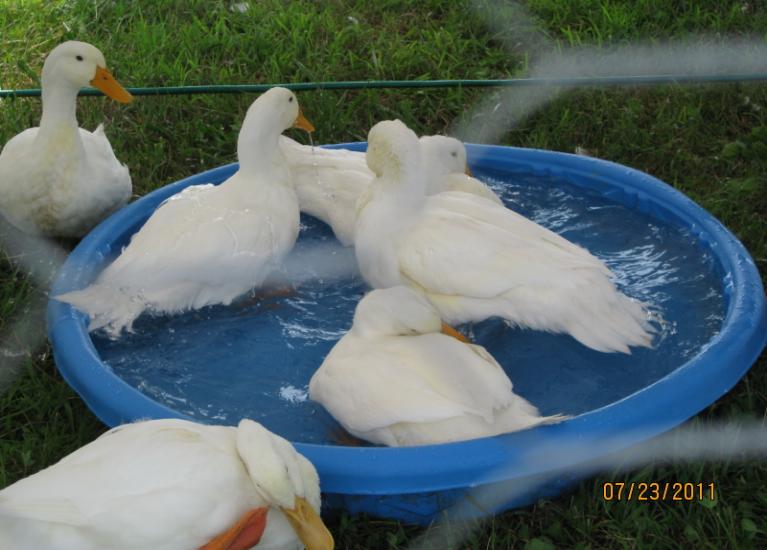 Unlike chickens, ducks will bath themselves! Prior to taking them to the fair, allow them ample time to swim in a pool of fresh water. Let them shake themselves after coming out of the pool and allow them to dry in the sun and warm summer breeze before transporting them to the fair in spacious, individual carrying cages.
Unlike chickens, ducks will bath themselves! Prior to taking them to the fair, allow them ample time to swim in a pool of fresh water. Let them shake themselves after coming out of the pool and allow them to dry in the sun and warm summer breeze before transporting them to the fair in spacious, individual carrying cages.
Once they are at the fair, place them in their show coop with fresh clean shavings. Give them fresh drinking water and feed daily. Change their bedding throughout the fair to keep them clean. Depending on how long the fair is, you may need to let them bathe themselves several times during the fair.
Judging Market Ducks
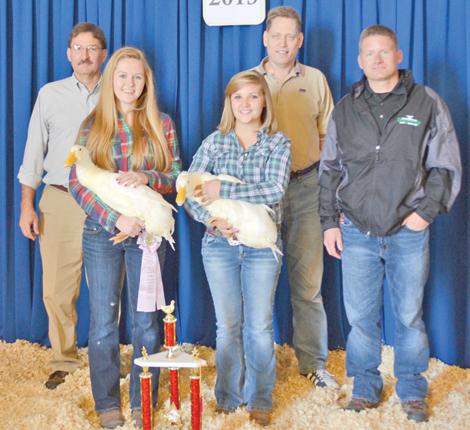 All of your hard work will pay off on Show Day!
All of your hard work will pay off on Show Day!
Be sure to have all of the health documents necessary for the fair. Most fairs have Face-to-Face judging with the judge. So, make sure that you can explain to the judge basic information about your ducks such as: hatch date, source, hybrid or strain, feeding program and basic raising practices.
The judge will evaluate your birds on their; 1) market-ready condition, 2) rate of gain and 3) feed efficiency.
Ducks that are market-ready are the appropriate size (7.5-8.5 pounds). They must have enough “finish” or fat to be ready for slaughter. Keeping them cool throughout the growing period will help. Your ducks must be “meaty” or muscular. Having the correct hybrid will insure adequate meat. Any dark colored feathers will down grade your duck substantially.
Ducks that have grown to market weight in seven weeks will exhibit “youthfulness.” Their muscularity will be tender instead of “hardened” as a mature duck. Young ducks that have grown properly will still have a small amount of down attached to their neck and head feathers. A top quality market duck will exhibit a long, deep body with plenty of fleshing in the breast. The keel bone will be covered with a thin layer of fat and smooth.
The judge will ask you how many pounds of feed you have fed your ducks. Quality ducks that are grown with minimal amount of waste will eat about 20 pounds of feed in seven weeks. Knowing the cost of your feed will show that you know the cost per pound of duck your birds have produced regardless if you or your parents paid for the feed. Accurate record keeping is essential to a successful market duck project!
The top ducks will be in excellent feather quality with a minimum of pin feathers. Immature pinfeathers will indicate that your ducks are too young and not ready for market. Remember, “Show Day is Market Day!”
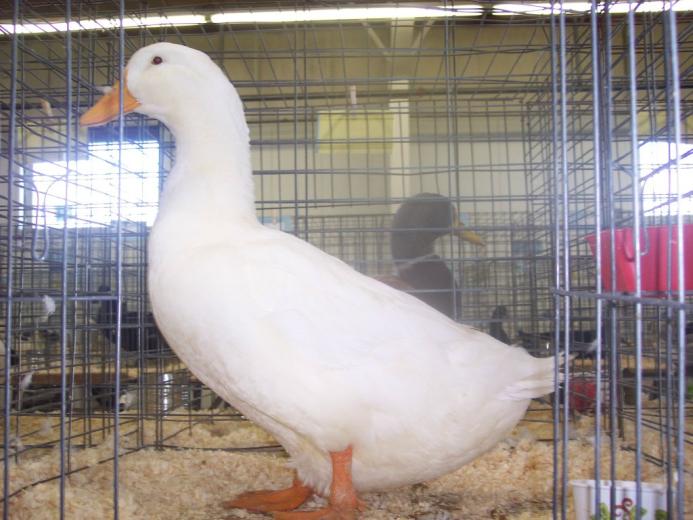 Finally, your birds must be clean and have unstained feathers. Your birds are a display of the quality of food that you are providing the public. Showmen of other species go to great extremes to make sure that their animals are presented in the best possible way to the judge. Besides, the judge does not want to handle dirty birds (and neither do you)!
Finally, your birds must be clean and have unstained feathers. Your birds are a display of the quality of food that you are providing the public. Showmen of other species go to great extremes to make sure that their animals are presented in the best possible way to the judge. Besides, the judge does not want to handle dirty birds (and neither do you)!
County Fair time is usually during the hottest days of summer. Keep them as cool as possible during the fair. Plastic soda bottles filled with frozen water placed in their pen will “air condition” the birds.
Handle the birds only when necessary. Holding the bird properly will reduce stress for the animal and for the exhibitor. Practice showing your bird before fair to allow it to show its best!
Enjoy your birds. You have worked hard to get them ready! Have fun!
Your Duck Project and Your Future
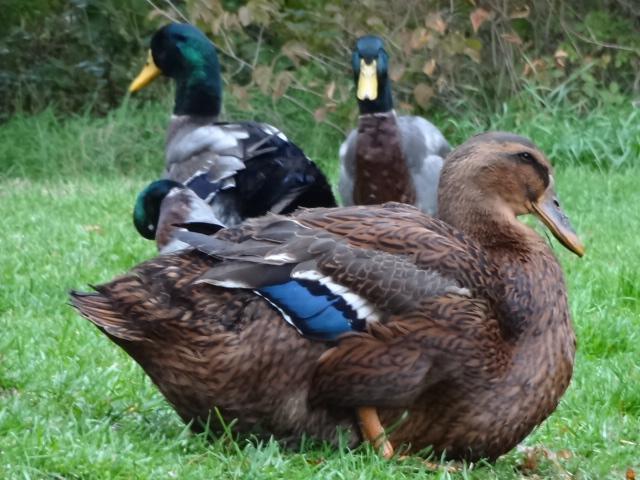
A commercial duck project will provide many enjoyable, life-long experiences. You will learn the responsibility of caring for animals and the skills necessary to be competitive in a show. Besides the animal husbandry skills that you learn, you will learn business skills such as handling money, calculating profits and lose as well as marketing a product.
Your duck project may lead to a career in animal health, sales, wildlife management, environmental science or the food industry. Think about the advertisement writers and animal trainers that create the Aflac Duck commercials!
With revived interest in locally grown, natural and organic foods, your duck project could grow into an entrepreneurial business.
You may even expand your commercial duck project into a Fancy Purebred Duck hobby! Imagine raising beautiful Rouens, Call Ducks or Cayugas in your backyard!
International Experience
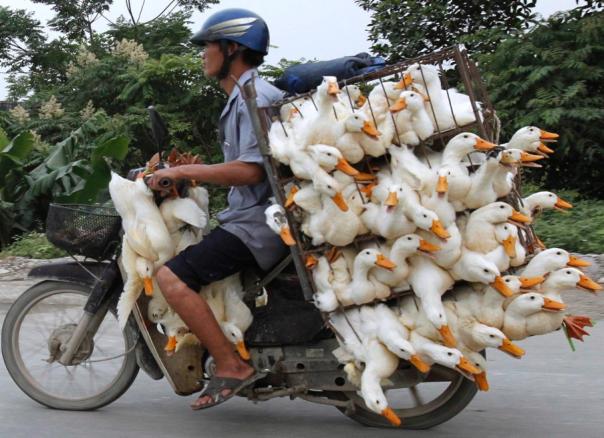 Young people with agricultural experience might travel the world working for governments and industries. Each country has its own culture. The production, marketing and processing food is essential to the economy and well-being of every nation.
Young people with agricultural experience might travel the world working for governments and industries. Each country has its own culture. The production, marketing and processing food is essential to the economy and well-being of every nation.
Four-H, FFA, Peace Corps and other youth organizations provide opportunities to experience distant lands and interesting people! Your duck project may help you to see the world!
Culinary Experience
Duck meat and eggs are an economical and palatable alternative for use in the home. Many recipes are available online or in cookbooks. TV cooking shows often tell the virtues of duck and explain how to prepare delightful dishes for your home table. Fresh frozen “Young Duckling” is commonly available in grocery stores year-round, so you can practice cooking before your ducks are ready.
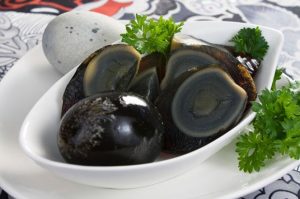 Culinary schools train students the art of preparing high quality duck dishes including roasted duck (right top) duck confit, duck l’orange, Foie gras, Century Eggs (right bottom)and countless baked goods.
Culinary schools train students the art of preparing high quality duck dishes including roasted duck (right top) duck confit, duck l’orange, Foie gras, Century Eggs (right bottom)and countless baked goods.
Skilled chefs prepare duck in many ways for elegant diners in five- star restaurants. Duck is highly prized in French cooking and is a staple in Chinese meals. So, give your taste buds a treat and experience the world!


